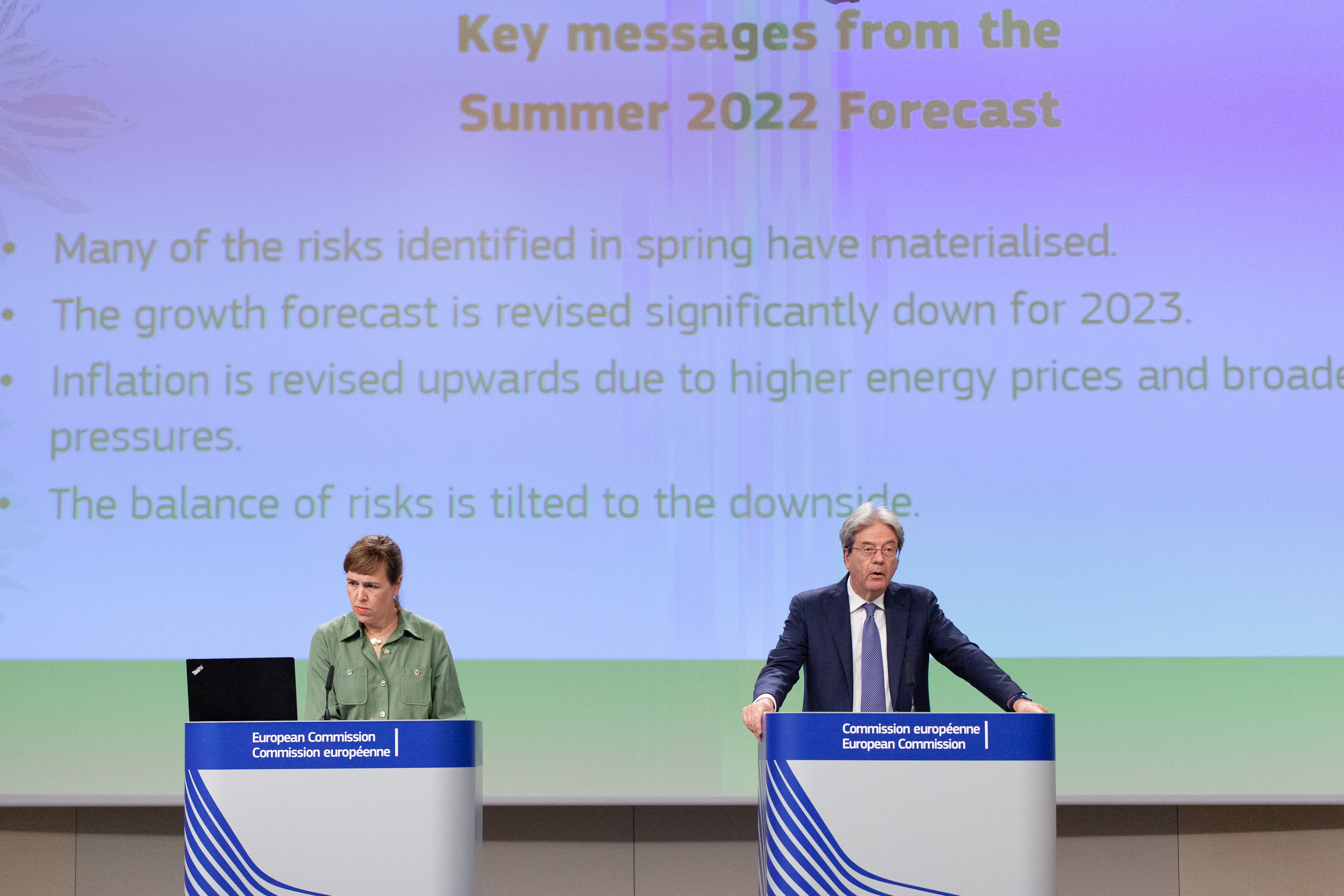Summer 2022 Economic Forecast: Russia's war worsens the outlook

date: 14/07/2022
The Summer 2022 (interim) Economic Forecast issued on 14 July projects that the EU economy will grow by 2.7% in 2022 and 1.5% in 2023. Growth in the euro area is expected at 2.6% in 2022, moderating to 1.4% in 2023. Annual average inflation is projected to peak at historical highs in 2022, at 7.6% in the euro area and 8.3% in the EU, before easing in 2023 to 4.0% and 4.6%, respectively. Many of the negative risks surrounding the Spring 2022 Forecast have materialised. Russia's invasion of Ukraine has put additional upward pressures on energy and food commodity prices. These are feeding global inflationary pressures, eroding the purchasing power of households and triggering a faster monetary policy response than previously assumed. Ongoing deceleration of growth in the US is adding to the negative economic impact of China's strict zero-COVID policy. Momentum gathered with the rebound of last year and a somewhat stronger than previously estimated first quarter is set to prop up the annual growth rate for 2022. Still, economic activity in the remainder of the year is expected to be subdued, notwithstanding a promising summer tourism season. In 2023, quarterly economic growth is expected to gather momentum, on the back of a resilient labour market, moderating inflation, support from the Recovery and Resilience Facility and the still large amount of excess savings. Overall, the EU economy is set to continue expanding, but at a significantly slower pace than expected in the Spring 2022 Forecast.
